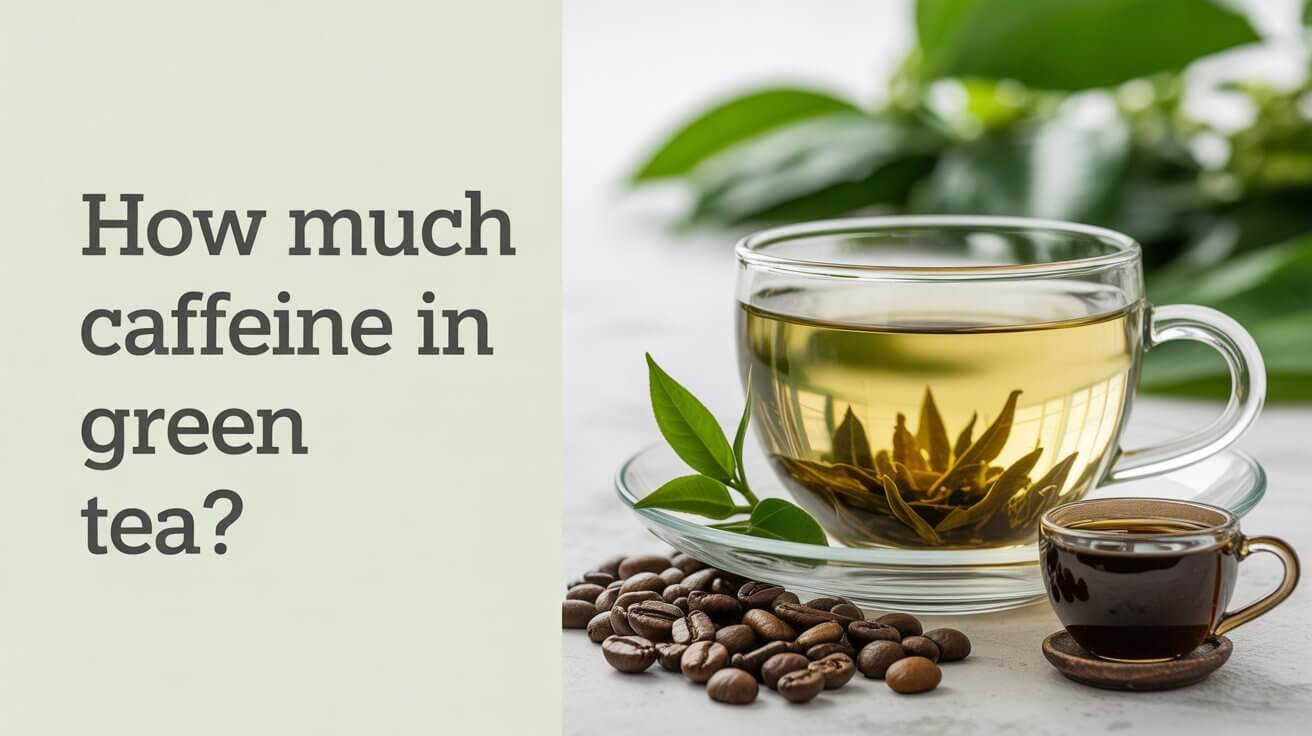Green tea has always been one of the most popular daily beverages, but as of 2025, more people are paying attention to how its caffeine level actually affects energy, sleep quality, and metabolism. One question continues to dominate:
How much caffeine is really in green tea and how does it compare to coffee, black tea, or metabolism-supporting slimming blends?
The short answer: it varies much more than most search results suggest.
The long answer backed by updated 2024–2025 findings reveals that caffeine levels depend on growing conditions, leaf age, preparation style, and even recent innovations in shade-farming.
This guide breaks down everything you need to know with deeper insight than most articles ranking on Google.
Does Green Tea Contain Caffeine? (And Why It Feels Smoother)
Yes green tea naturally contains caffeine.
But unlike the abrupt energy spike often associated with coffee, green tea delivers a smoother, steadier rise in alertness.
Why the difference?
Modern behavioral studies (2024) show that L-theanine, an amino acid abundant in green tea:
-
Promotes calm focus
-
Reduces stress-related neural activity
-
Stabilizes caffeine absorption by modulating alpha brain waves
This “calm stimulation” effect is one reason people transitioning from coffee or from high-caffeine fat-burners often prefer green tea or slimming blends that use green tea as a metabolism-support ingredient.
How Much Caffeine Is in Green Tea? (2025 Updated Range)
Most cups contain: 30–55 mg per 8 oz (240 ml)
However, newer data shows this is only the middle range.
2024–2025 expanded caffeine range (expert breakdown):
-
Standard green tea: 30–55 mg
-
Shade-grown teas (e.g., gyokuro): 45–65 mg
-
High-grade spring teas: 50–70 mg
-
Powdered teas like matcha: 60–80 mg (because you consume the whole leaf)
-
Decaf green tea: typically 2–5 mg
Many readers switching from coffee report that understanding these ranges helps them choose a tea that matches their preferred energy level or helps them transition into gentler slimming teas for morning metabolism and caffeine-free blends for evenings.
What Influences the Caffeine Level? (2025 Insights)
Most online articles mention steeping time but caffeine levels are shaped by several layers of factors, from farming technique to harvest timing.
1. Tea Variety & Leaf Age
Younger leaves contain more caffeine.
That’s why spring “first flush” teas increasingly available online in 2024–2025 have a noticeably stronger kick.
2. Growing Method
Shade-grown teas like gyokuro or matcha accumulate more caffeine because the plant produces extra chlorophyll and amino acids.
3. Brewing Time
Longer steeping dramatically increases caffeine extraction:
-
1–2 minutes: mild energy
-
3–4 minutes: much stronger effect
4. Water Temperature
Caffeine dissolves more efficiently above 175°F (80°C).
Using slightly cooler water reduces caffeine and bitterness.
5. Loose Leaf vs. Tea Bags
Higher-quality loose leaf typically provides more caffeine because it contains intact, high-grade leaves instead of dust or fannings.
Green Tea vs. Coffee vs. Black Tea (What to Expect Energy-Wise)
A simple comparison helps position green tea within your daily routine:
-
Green tea: 30–55 mg
-
Black tea: 40–70 mg
-
Coffee: 95–200 mg
Why many users switch:
green tea offers metabolic benefits, L-theanine for smoother focus, and significantly lower caffeine for those wanting less stimulation.
This is also what makes metabolism-support herbal blends like All Day Slimming Tea popular a gentle morning lift, paired with a caffeine-free night blend for evening relaxation.
Benefits of Green Tea Beyond Caffeine (2024–2025 Research)
Green tea’s real value isn’t caffeine, it’s the synergy between antioxidants, catechins, and amino acids.
Updated research from 2024 shows:
EGCG supports metabolic pathways
which explains why many slimming formulas include green tea as a core ingredient.
L-theanine + caffeine improves cognitive performance
without the jittery feeling that often comes from coffee or synthetic stimulants.
Flavonoids support cardiovascular and cellular health
when consumed consistently over time.
This is also why many nighttime blends (such as All Day Slimming Tea’s evening formula) combine green-tea-free calming herbs like rooibos and chamomile to balance days with nights.
Who Should Limit Caffeine from Green Tea?
Although green tea is gentler than coffee, certain groups benefit from minimizing caffeine:
-
People sensitive to stimulants
-
Those experiencing anxiety or poor sleep
-
Pregnant or breastfeeding individuals
-
Anyone advised by a healthcare provider to limit caffeine
For these individuals, decaf green tea or caffeine-free slimming blends are better choices.
How to Reduce Caffeine in Your Cup (Evidence-Based Tips)
If you want green tea’s benefits without excess stimulation, try:
-
Choosing decaf or herbal blends
-
Steeping only 1 minute
-
Brewing with cooler water (160–175°F / 70–80°C)
-
Avoiding matcha after afternoon
-
Switching to a caffeine-free night herbal blend such as All Day Slimming Tea Night Formula
These adjustments help manage caffeine intake without sacrificing flavor or benefits.
People Also Ask (2025 Edition)
Is green tea strong enough to replace coffee?
For many people, yes especially matcha or gyokuro. Others prefer green tea as a mid-day or afternoon alternative.
Is decaf green tea really caffeine-free?
Not entirely. Most decaf options still contain 2–5 mg of caffeine.
Which green tea has the highest caffeine?
Matcha and shade-grown gyokuro typically top the list.
Which green tea is best for weight loss?
Those with higher EGCG content such as sencha or high-grade matcha tend to support metabolism more effectively. For slimming-specific benefits, blends like All Day Slimming Tea combine green tea with herbs that complement fat metabolism and digestion.
Summary: How Much Caffeine Is in Green Tea in 2025?
Most cups contain 30–55 mg, but actual levels depend heavily on:
-
Tea type
-
Growing conditions
-
Leaf quality
-
Steeping method
As of 2025, people choose green tea not only for its moderate caffeine but also for its antioxidant benefits, metabolism support, and smoother energy curve.
If you want a daytime lift with green tea and a caffeine-free nighttime option, a dual-system like All Day Slimming Tea helps maintain balance around the clock.


Leave a Reply